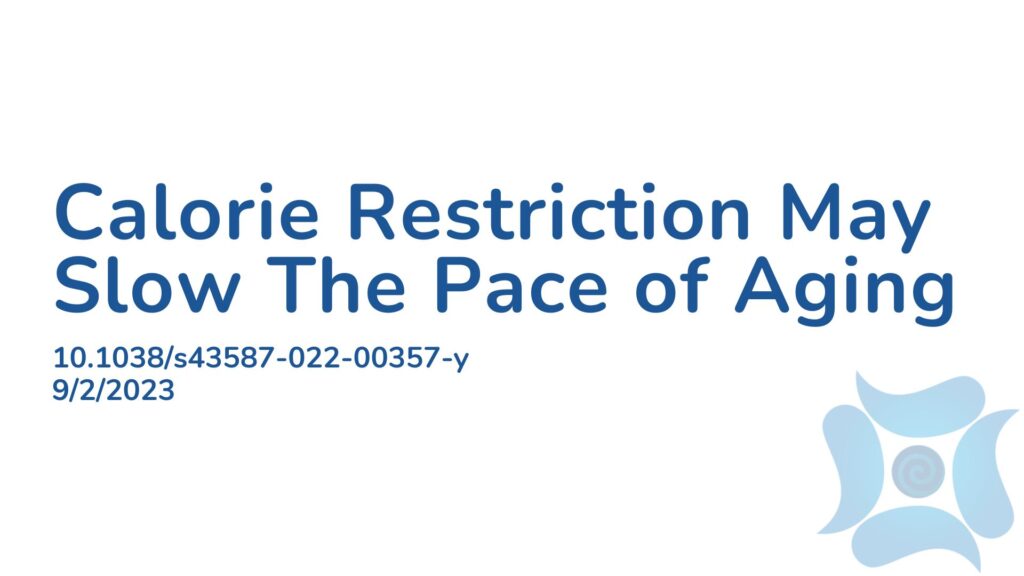Summary:
Literature has shown that calorie restriction (CR), which is defined as reducing dietary intake of calories, can slow down aging by positively impacting DNA methylation and increasing healthy lifespan. This paper analyses a randomized controlled trial (RCT) that looked at the the way CR impacts DNA and aging from blood samples. The RCT looked at 220 healthy adults and showed that CR slowed the rate of aging but did not lead to any substantial changes in biological age. Regardless, reducing the pace of aging can have impactful effects on overall health and is linked to reduced risk of chronic disease and mortality.
Abstract:
The geroscience hypothesis proposes that therapy to slow or reverse molecular changes that occur with aging can delay or prevent multiple chronic diseases and extend healthy lifespan1,2,3. Caloric restriction (CR), defined as lessening caloric intake without depriving essential nutrients4, results in changes in molecular processes that have been associated with aging, including DNA methylation (DNAm)5,6,7, and is established to increase healthy lifespan in multiple species8,9. Here we report the results of a post hoc analysis of the influence of CR on DNAm measures of aging in blood samples from the Comprehensive Assessment of Long-term Effects of Reducing Intake of Energy (CALERIE) trial, a randomized controlled trial in which n = 220 adults without obesity were randomized to 25% CR or ad libitum control diet for 2 yr (ref. 10). We found that CALERIE intervention slowed the pace of aging, as measured by the DunedinPACE DNAm algorithm, but did not lead to significant changes in biological age estimates measured by various DNAm clocks including PhenoAge and GrimAge. Treatment effect sizes were small. Nevertheless, modest slowing of the pace of aging can have profound effects on population health11,12,13. The finding that CR modified DunedinPACE in a randomized controlled trial supports the geroscience hypothesis, building on evidence from small and uncontrolled studies14,15,16 and contrasting with reports that biological aging may not be modifiable17. Ultimately, a conclusive test of the geroscience hypothesis will require trials with long-term follow-up to establish effects of intervention on primary healthy-aging endpoints, including incidence of chronic disease and mortality18,19,20.
Article Publication Date: 9/2/2023
DOI: 10.1038/s43587-022-00357-y




